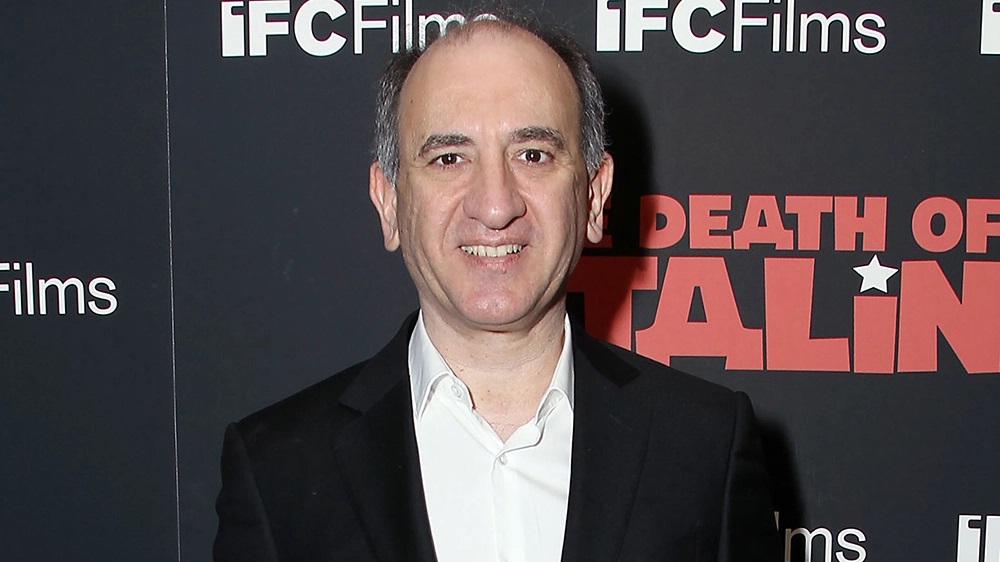As you’re reading this, Donald Trump is no longer occupying the Oval Office. And, if you are sane, that news is being greeted with a sigh of relief.
But you also know this isn’t the end of the chapter. I certainly don’t expect it to be. America has had dark moments before, but the worst thing we as a nation can do is ignore our flaws. Now, to be fair, there have been plenty of other countries that have tried to sweep their past under a rug and America is unique in the fact it openly discusses what went wrong. Where America stumbles is when we have to draw a conclusion from what we find.
Trump is a particularly toxic stain on the nation. The man himself doesn’t mean much. He is a low rent Vito Corleone who somehow succeeded thanks to a giant propaganda machine and due to fear of an unknown future. No, the worst part of his time in office was the fact so many people were willing to stand up for him no matter what he did. It came to a head when he encouraged a bunch of insurrectionists to invade the Capitol so he could stay in power.
And they listened.
One of the best ways to come to terms with a tragic event is with a postmortem. We may be a few years away from examining the ”Trump era,” but that review is necessary to help us all understand what happened.
There have already been numerous articles, news reports, and documentaries about the nightmare we’ve endured over the past four years. There’s likely to be many more, including an inevitable biopic. It’s a story that rife with drama. How did such a deeply flawed man who cheated his way through life still end up succeeding? And, when he finally got everything he ever wished for, it ruined him in the same way it ruined Macbeth. What does that say about us?
Unfortunately, while everyone will want a crack at it, there are only a few who may be able to pull it off successfully — something that successfully balances how absurd yet how dark the MAGA story is.
Oliver Stone — Let’s get the obvious choice out of the way. Oliver Stone built his career on dramatically re-examining modern American history. His most renowned films look at people who find themselves either utterly corrupted by the system in place or about the people fighting for change in a system that desperately wants to maintain the status quo, no matter how horrifying it is. He frequently plays fast and loose with history (Peabody and Sherman is more accurate educational tool than his JFK), but his films are effective at making Americans feel desperate and want to change things. And he’s not afraid to tackle America’s warts and how venerated institutions could also be leading the nation to its destruction. Trump seems like the perfect Oliver Stone character, from Gordon Gecko’s greed and nonchalance about hurting people, to Wayne Gale’s desire for attention no matter the cost, and to Richard Nixon’s…well, everything.
And yet, I don’t think he should be the one to direct any Trump biopics.
For one, it is too obvious a choice and it’s been a long time since Stone managed to capture the nation’s true zeitgeist. Sure, he’s tried with things like Snowden, but that didn’t have much of a cultural impact. Besides, Stone has gotten lazier in his old age and is content with hitting the same outraged notes. But Trump’s existence goes a lot deeper than that. His story isn’t just about corruption and dissatisfaction with a system that doesn’t work the same for everyone. It’s about how a large group of people wanted to completely destroy the nation and rebuild it from scratch as something far more sinister. JFK’s speeches about America becoming a fascist nation seem quaint in comparison.
Finally, Stone just isn’t that funny.
Trump’s presidency was a pitch-black comedy that showed the nation’s flaws to the entire world. Yet he and the people around him were so utterly incompetent that their efforts at authoritarianism are, in retrospect, laughable. The mere fact that he was able to convince so many people to go along is the ultimate tragedy of the story, but it’s impossible to ignore how absurd the whole thing was. It will take some balancing, but that’s what would be needed for Trump’s biopic. And Stone just isn’t up to the challenge.
Verdict: No. Go make Any Other Given Sunday or something.
Aaron Sorkin — This is another seemingly obvious choice. Sorkin, like Stone, has made a career out of analyzing American institutions and how those institutions reflect on its people. He created what many people consider to be the definitive television show about the presidency (I was never a fan, but I’ll get to that in a minute) and, unlike Stone, is capable of wit. The Trial of the Chicago 7 also demonstrates Sorkin is quite capable of examining moments in American history that other people would like to sweep under the rug.
He may be good as a co-writer on the eventual movie, but that is where his involvement should end.
The West Wing shows that Sorkin holds ideas about America that are far too romantic and do not correspond to reality. In his show, good always triumphs and reason and logic can easily shut down hysteria and ”alternative facts.” Additionally, Sorkin is full of nostalgia for a ”simpler time” in American history (see that monologue about whether America is the ”greatest country in the world” in Newsroom). Yet those times never existed. There has always been fear, there’s always been a desire to stop progress in the name of protecting those in power, and Americans have always chosen simpler messages and tried not to focus on complex issues.
Trump is the anti-Sorkin character. He’s never been defeated by logic or a moral compass. And he reflects how the past wasn’t a paradise. Trump had been a towering pop culture figure for decades and, despite his multiple bankruptcies, was shorthand for success.
Now, Sorkin did write a great movie about Mark Zuckerberg, another rich man whose time in the public eye proved to be his undoing. Yet that movie works due to David Fincher’s direction just as much as it does for Sorkin’s script. He needs to be reigned in for his scripts to work. Otherwise, he’s shown that he loves his own writing far too much.
Ultimately, there is not enough of a ”romantic” element in the Trump story for Sorkin to exploit. The good guys didn’t exactly win and the bad guys have yet to lose. We’ll see what the future holds but as of now, there isn’t enough for Sorkin to work with.
Verdict: We’re getting closer but still not there yet. Maybe Sorkin would be better off making a movie about Robert Mueller.
David Fincher — Speaking of David Fincher, in addition to directing The Social Network, he produced what it probably the second most famous television show about the American presidency, House of Cards. The show crashed and burned after the horrifying allegations about Kevin Spacey’s behavior around younger actors came to light but was already devolving into a parody of itself. Yet Frank Underwood, as a character, displays the same Richard III characteristics that many of Trump’s cronies shared during their time in the White House. Steve Bannon acted as the same sort of puppet master Frank Underwood did to the people around him. He has no moral compass, and his only goal was power.
Fincher is also capable of the necessary humor. House of Cards has some very funny moments in its early seasons, even if the humor is incredibly sarcastic. Underwood frequently breaks the fourth wall to mock the people around him. That feels like something the MAGA crowd did over the past four years — acknowledge the pain they’re causing but using it as a source of amusement.
Additionally, Fincher is one of the few directors to ever examine why people join a cult. Fight Club shows how susceptible people are to a charismatic figure that can identify their dissatisfaction with the world. I’ve heard many people talk about how Tyler Durden was right and how his desire to destroy the system was a noble act. They forget that Durden leaves a lot of bodies in his wake and his followers have been utterly cut off from the rest of society — and have needlessly died for a phony cause.
I believe Fincher could make a remarkably interesting movie about Donald Trump and MAGA. But I also think there are filmmakers who can make a better one. Fincher’s movies are incredibly dark and I’m hoping we can get some light out of this story. I really want the Trump presidency to be something that we can all point to and laugh at in the future, while recognizing that it’s something that can never happen again. Too many people romanticize Fincher’s villains and think they’re something to aspire to. Others know better, but we need someone who can definitively bury Trump and his cronies.
Verdict: I wouldn’t object to a Fincher directed Trump biopic, but I do think there are filmmakers who could do a better job.
 (Image Courtesy of The Los Angeles Times)
(Image Courtesy of The Los Angeles Times)
Armando Ianucci — I don’t have a proper segue way to him, except to say that I love Ianucci’s works. He has made some of the best political satire I’ve ever seen.
Ianucci is the creator of the British comedy The Thick of It, which was later spun off into the Oscar nominated film In the Loop. Both feature Doctor Who star Peter Calpadi as Malcolm Tucker, Director of Communications for his party in the UK. In the Loop features him advocating for military action in the Middle East behind the scenes.
Later, Ianucci made The Death of Stalin. He managed to take a very dark time in history and turn it into a complete farce. There’s seemingly nothing funny about the transfer of power in the former Soviet Union, but Ianucci found a way to highlight the absolute stupidity of the top Party leaders. Ianucci can make the darkest possible moments funny because none of the characters realize what they’re truly saying. In The Loop has a great scene with James Gandolfini as a general committing American troops to the war effort in the Middle East via his daughter’s toy computer. He doesn’t even seem to realize what he’s doing as he makes a joke about how many troops he could send into a war.
That’s the sort of thing that defined the Trump administration. Every decision was so absurd, so poorly thought out, that it may as well have been made in a child’s bedroom. And Ianucci can turn darkness into light no matter what the subject is.
We need a unique creator to not only understand what happened, but to make it palatable. Ianucci has shown he can do that and the second he announces a Trump biopic, I will buy a ticket. But there’s one filmmaker I think could top his approach to the material. Let’s take a look at them.
Verdict: He’s one of the few who could pull it off, but I think someone else can do it better.
Taika Waititi — He is the person I want to make the Trump movie. He’s shown that he can combine the best elements of the story and the worst.
New Zealander Waititi started as an actor but later went behind the camera to direct episodes of Flight of the Conchords. He later demonstrated his mainstream appeal by directing Thor: Ragnarok and demonstrated he was still willing to experiment by co-directing What We Do in the Shadows, which was later spun off into a successful TV show.
But the reason I think Waititi is the perfect choice to direct a Trump biopic is his work on Jojo Rabbit.
That movie isn’t a direct satire about Nazi Germany. It’s about how people fell for the obvious fraud Nazi Germany promoted to its citizens.
The idea of superiority over others is a very attractive idea, especially to those who don’t feel like they have any power. But, in practice, these beliefs make the people supporting them look absolutely ridiculous. The danger, though, is how far those people will go to justify the lie.
JoJo Rabbit perfectly captures this element of Nazi society. And, unfortunately, it’s the same thing they share with many Trump supporters.
That’s the best story to tell about the past four years. Not about the man himself — he’s made sure we’ve seen his every move for decades. What’s far funnier but simultaneously far more tragic is the fact that, somehow, Trump convinced a lot of people to go along with his insane ideas. I’m not sure if anyone had him as an imaginary friend, but I do believe there were plenty of people convinced Trump somehow truly loved them.
That would be the most interesting element of the story. Trump, obviously, couldn’t stand his poorer, white supporters. He used them for his own gain. Waititi has already created that same story about fanaticism and how it destroyed people. And, despite the subject matter, he made it funny.
That’s what we need to understand and what will make the story of Trumpism somewhat palatable.
Verdict: Please hire Taika Waititi to make the Trump biopic.









Comments